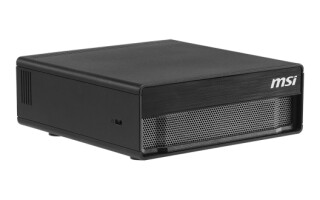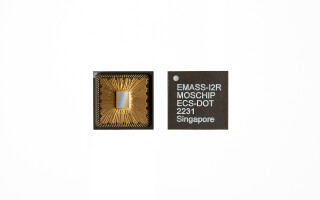Extreme Hygienic Control HMI PC for Food/Pharmaceutical/Healthcare Applications After Pandemic
June 29, 2020
Story

Highly regulated industries like healthcare, industrial automation, and transportation demand that most electronic systems conform to a wide variety of standards.
Highly regulated industries like healthcare, industrial automation, and transportation demand that most electronic systems conform to a wide variety of standards. But, developing to the electronic safety standards of the medical industry; rugged requirements of the automation industry; or harsh environments of the oil/gas and chemical processing industries are neither simple nor inexpensive endeavors. After the COVID-19 pandemic, it is learned that hygienic control is not only for food, healthcare, or the pharmaceutical industry, but also all range of automatic control in HMI applications. Therefore, the cleansers that could avoid bacteria and virus are increasing the demand on different systems, and Wincomm has come out the product strategy to prevent COVID-19 growth by cleanser of sodium hypochlorite with our partners.
Below are just a few design requirements an AIoT design team could encounter on their path to productization.
- Ingress Protection (IP) – The IEC 60529 standard specifies a variety of IP ratings that signify how resistant a system is to objects, dust, water, and even submersion, while ISO 20653 ratings dictate resiliency against steam jets (Figure 1). These standards are principally a measure of how well a system is packaged. Of course, the more heavily packaged a system is, the more susceptible it becomes to overheating.
- RF Emissions – EMC regulation also comes in a number of forms. EMC standards regulate RF energy emissions to help prevent interference between systems in “noisy” RF environments and ensure consistent device operation. At the highest level, EMC is split into Class A equipment (systems that operate outside of domestic environments) and Class B equipment (systems that operate within domestic environments). In brief, Class B is more restrictive than Class A by a factor of ~10 dB. Beyond that, systems are also designated as either Group 1 or Group 2 devices, which defines ISM equipment that generates or uses RF for its own internal functioning or ISM equipment that generates or uses electromagnetic radiation for an external function.

Figure 1. Industrial-grade systems are typically rated from IP66 up to IP69K, the highest ingress protection grade against high-pressure, high-temperature steam and water jets (Source: Phoenix Contact).
Ingress Protection for Rugged Applications
In almost all of the application areas mentioned, AIoT systems must operate for many years in dirty, wet environments that experience extreme temperatures. Rugged housings composed of plastic, steel, or aluminum are a baseline requirement in these conditions.
Wincomm leverages a variety of mechanical and thermal design techniques in its custom IP67/IP68/IP69K-certified designs and Full IP series of touch-panel and box PCs. These include:
- Fully-Sealed, Expertly-Machined Housings – By utilizing rounded housings, robust connectors and antenna covers, Wincomm engineers are able to deliver fully-sealed, gapless packaging options. Not only does this allow AIoT technologies to be dust-proof and even submerged completely in water. This serves as a baseline for IP69K-rated single- or multi-touch solutions. Downward-facing I/O also minimizes the overall footprint and minimizes installation headaches for machinery deployed into tight spaces (Figure 2).
- Stainless Steel and Aluminum Packages – These packaging options are ideal for equipment that requires anti-corrosion and anti-oxidation properties. Apart from being robust against soaps, chemicals, water, and debris, these architectures are low maintenance; produced using green, recyclable materials; and support wide temperature operation.
 |
Figure 2. Wincomm provides hot swappable COM interfaces on the underside of designs for easy installation of AIoT systems in space-constrained environments.
In addition the finely polished stainless steel design could prevent bacteria growth, and easy to clean under high pressure and with aggressive chemical agents regularly. In most hygienic requirement environment, it needs to be operated with gloves, objects, or bare fingers, regardless of whether moisture or dirt is present, and Wincomm WTP series designed with reliable touch technology to fulfill this demand. Moreover, it could be on/off touch screen to easy clean and extended its operation temp. from -20~60°C, that makes it perfectly suit for most hygienic applications, including medication workflow at pharmaceutical, weighting system, food process, clean room and chemical industries (Figure 3).

Fig 3. Designed to withstand extreme hygienic environments, WTP series support wide temp operation, are granted up to protection class IP66/69K, anti-corrosion to prevent COVID-19 by using sodium hypochlorite and provide flexible I.O. combination by cable gland.
Wincomm smart process control under hygiene method solutions is under full IP66/67/69K requirement to optimize computing power with various connectivity at Process Control Solutions, such as anti-water, anti-dust, anti-corrosion, anti-oxidation and so on, to keep manufacturing, quality assurance and package tracking suit for food process, medication workflow and healthcare disease or safety control applications (Figure 4).

Fig 4. Wincomm hygienic panel PC WTP series is suitable to various deployment sites, such as medication clean room, pharmaceutical factory, food process factory & kitchen, and healthcare center.




